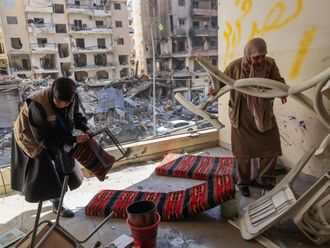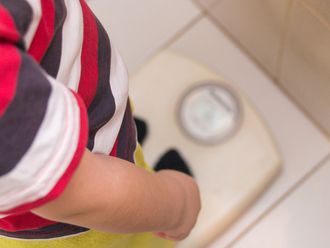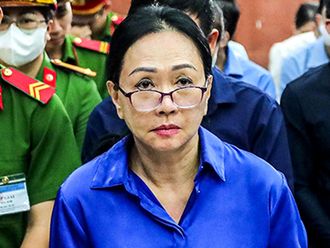Dubai: Iranian President Mahmoud Ahmadinejad, who yesterday began his first official visit to Lebanon, was received by a divided public, reflecting deep divisions among the Lebanese population.
Whether this visit reinforces Tehran's influence in the fragile Mediterranean country, which borders Iran's foe, Israel, is yet to be determined.
While the Iranian president was greeted by adulation of tens of thousands of Lebanese Shiite supporters, throwing flowers on Ahmadinejad's motorcade, scores of politicians and intellectuals raised issues in an open letter. In it, they criticised Iran's meddling in Lebanese affairs.
Some point to Lebanon's historical sectarian divisions when explaining the reasons for the country's recent political turmoil as well as the differing reactions to Ahmadinejad's visit.
But prominent Lebanese political analyst Waddah Shararah says it's not that simple.
Not simply sectarian
"There are [also] borders, castles, fortresses and moats. It is a combination of all [the current] struggles, internal, regional and international.
"It is wrong in my opinion to look at the sectarian division as the main reason," behind the Lebanese divisions vis-a-vis Ahmadinejad's visit, Shararah told Gulf News.
On the way from the airport to the presidential palace, Ahmadinejad's convoy was showered with rice, sweets, flower petals and rose water, eyewitnesses said.
Huge banners with pictures of the Iranian president were put up near the airport and in Hezbollah's stronghold in Beirut's southern suburbs. Iranian flags lined the airport highway.
On Tuesday, some 250 Lebanese citizens, including former MPs close to the Western-backed parliamentary majority, doctors, teachers and journalists, signed the open letter strongly criticising what they considered meddling in Lebanon's affairs.
They lashed out at Ahmadinejad over Iran's support of Lebanon's Shiite group Hezbollah.
"Your talk of ‘changing the face of the region starting with Lebanon' ... and ‘wiping Israel off the map through the force of the Islamic resistance in Lebanon' ... gives the impression that your visit is that of a high commander to his front line," the letter said.
According to Shararah, there is also the "ideological element" in the positions taken, and there are Shiites among those who oppose the visit.
"Iran does not need to have an influence in Lebanon," said Pierre Rafoul, General Coordinator for the Free Patriotic Movement party, the main Christian group in the opposition — or what is known as the March 8 Alliance, headed by Hezbollah, and one of the Lebanese Shiite group allies in the political arena.
"There is a consensus in Lebanon on receiving the Iranian president," Rafoul said.
"The difference lies in the [expected] outcome of the visit, with calls to accept Iran's offer to aid the Lebanese army, and rejections to such offer," he said.
Both countries are expected to sign several accords during the visit, including a $450 million (Dh1.6 billion) loan agreement to fund Lebanese electricity and water projects.
Iran is under economic and military sanctions imposed by the UN. Many western powers were alarmed by the Iranian president's visit to Lebanon, particularly under the current circumstances where Tehran is facing growing concerns over its nuclear programme.
Meanwhile, Lebanon is descending towards an internal political crisis over the UN-backed tribunal in the murder of former Prime Minister Rafik Hariri.
US Secretary of State Hillary Clinton yesterday said she rejects any efforts to destabilise Lebanon as Ahmadinejad arrived there for a contentious visit.
Hezbollah, which is financially and militarily backed by Iran, has been at odds with the parliamentary majority headed by Prime Minister Hariri over unconfirmed reports that the tribunal is set to indict members of the group for the 2005 assassination.
Growing tension threatens Hariri's national unity government, and could lead to its collapse.
Some Lebanese media reports said the Iranian president's visit to Leban-on has been extended one day until tomorrow.
During theIranian president's visit, he will be the guest of honour at lunches and dinners hosted by senior politicians, including Hariri, politicians said.
Friendship
Rafoul echoed the praise of many Lebanese to Iran's support for Lebanon during the 2006 Israeli war, which killed nearly 1,200 Lebanese; the vast majority of them were civilians, and 160 Israelis, most of them soldiers.
During his joint press conference with his Lebanese counterpart, Michel Sulaiman, Ahmadinejad hailed Lebanese resistance led by Hezbollah.
The Iranian president plans to tour south Lebanon today, along the border with Israel - a tour that is expected to keep Israel on tenterhooks.
— With inputs from agencies












